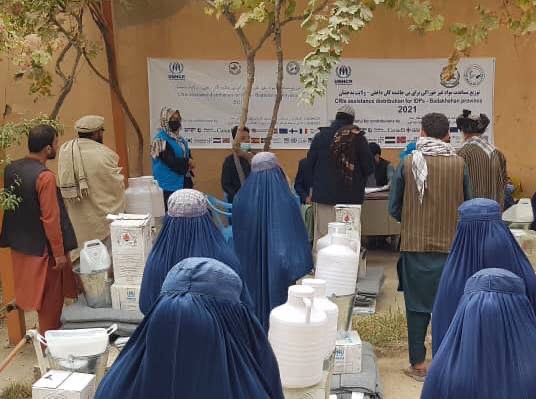“Winter is difficult, and we have nothing except God, and we need more help,” says aid recipient Bibi Pashtoon during the distribution of relief to hundreds of displaced families in capital Kabul.Aid agencies have delivered food, blankets, and cash to hundreds of displaced families in Kabul as humanitarian assistance begins to trickle into Afghanistan following warnings the country faces potentially catastrophic famine this winter.
The distribution of aid to 324 families on Wednesday represents a tiny fraction of the needs in Afghanistan, which faces a severe drought as well as a near collapse of its economy following the withdrawal of Western support.
Chilly weather underlined the urgency in getting assistance to thousands of displaced people in the capital, many having fled from the provinces and sleeping in tents or improvised accommodation around the city.
As people lined up inside the UN compound for handouts of food and basic household items, larger crowds gathered outside, many desperate for help.
“We got this assistance, but we cannot spend the winter with it,” said Bibi Pashtoon. Poverty in cities
But the challenge of providing the aid is massive. As well as farmers and rural people displaced by drought, poverty has extended into the cities where widespread unemployment has forced many to try to sell their household goods to raise money.
“Around 50,000 Afghan people from different provinces of the country have been displaced because of recent conflicts and are in Kabul. Our assistance continues to needy people every week,” said UNHCR spokesperson Babar Baloch.
Even before the Taliban’s victory over the Western-backed government in Kabul two months ago, more than 18 million Afghans, or about half the population, needed humanitarian aid, according to the United Nations High Commissioner for Refugees.
Other UN estimates suggest that as much as 97 percent of the country’s population could be plunged into poverty by next year in a worst-case scenario.


Comment here